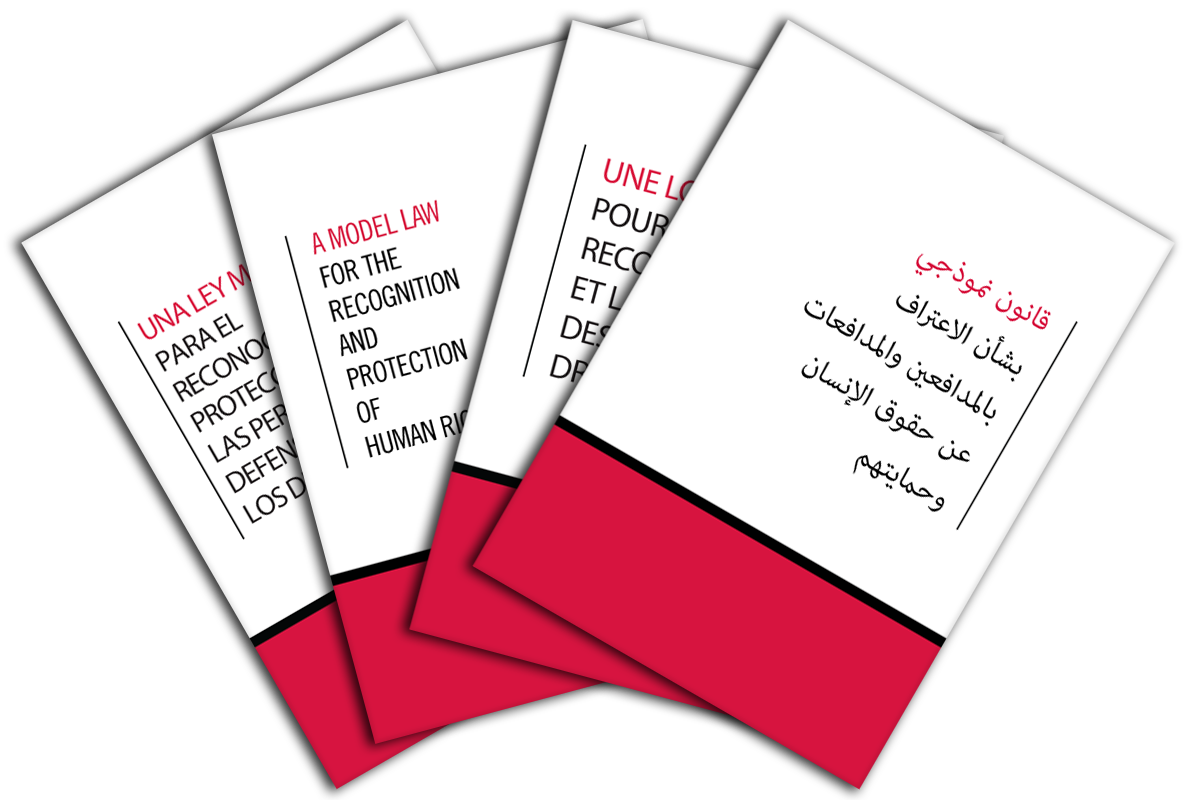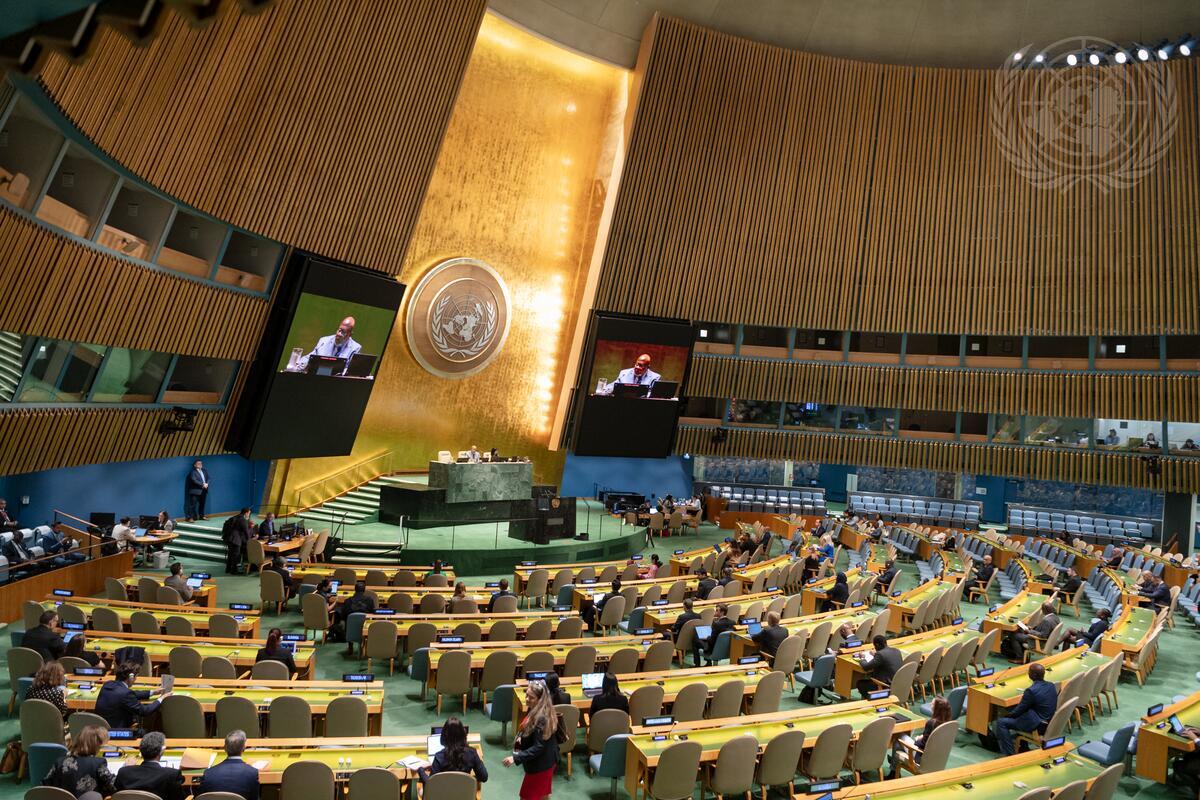
Iran: Human Rights Council must convene a special session
Fifty organisations urge the UN Human Rights Council to urgently convene a special session to address an unprecedented escalation in mass unlawful killings of protesters in Iran.

The legal recognition and protection of defenders are crucial to ensuring that they can work in a safe, supportive environment and be free from attacks, reprisals and unreasonable restrictions. The Model Law developed by ISHR to help policy makers better support defenders is now available in four languages, including Arabic.
Launched in early 2017 in English, Spanish and French, the ‘Model National Law on the Recognition and Protection of Human Rights Defenders‘ is now available in Arabic as well, thanks to the support of the UK Foreign and Commonwealth Office.
This Model Law was developed in collaboration with over 500 defenders from every region. The Model Law was settled and adopted by 28 of the world’s leading human rights experts and jurists in 2016. It is intended to guide and assist States and other actors to ensure the full and effective implementation of the UN Declaration on the Right and Responsibility of Individuals, Groups and Organs of Society to Promote and Protect Universally Recognized Human Rights and Fundamental Freedoms (the UN Declaration on human rights defenders) at the national level.
Three countries have already adopted a law inspired by ISHR’s Model Law, including Mali, Cote d’Ivoire, Burkina Faso, with several others working towards this goal. Thanks to the additional language version now available, we hope that MENA countries will also join the movement and adopt laws to better protect and promote defenders.
Photo: ISHR

Fifty organisations urge the UN Human Rights Council to urgently convene a special session to address an unprecedented escalation in mass unlawful killings of protesters in Iran.

The Escazú Ahora Chile Foundation, the Protege los Molles Foundation and ISHR demand that the investigation, arrest and legal proceedings involving Julia Chuñil's relatives be conducted in accordance with international standards of due process.

At a time of financial strife and ongoing reform for the organisation, States have adopted a 2026 budget cutting 117 jobs at the UN’s Human Rights Office. The final budget endorses proposed cuts that disproportionately target human rights, imperilling the UN’s ability to investigate grave abuses, and advance human rights globally.